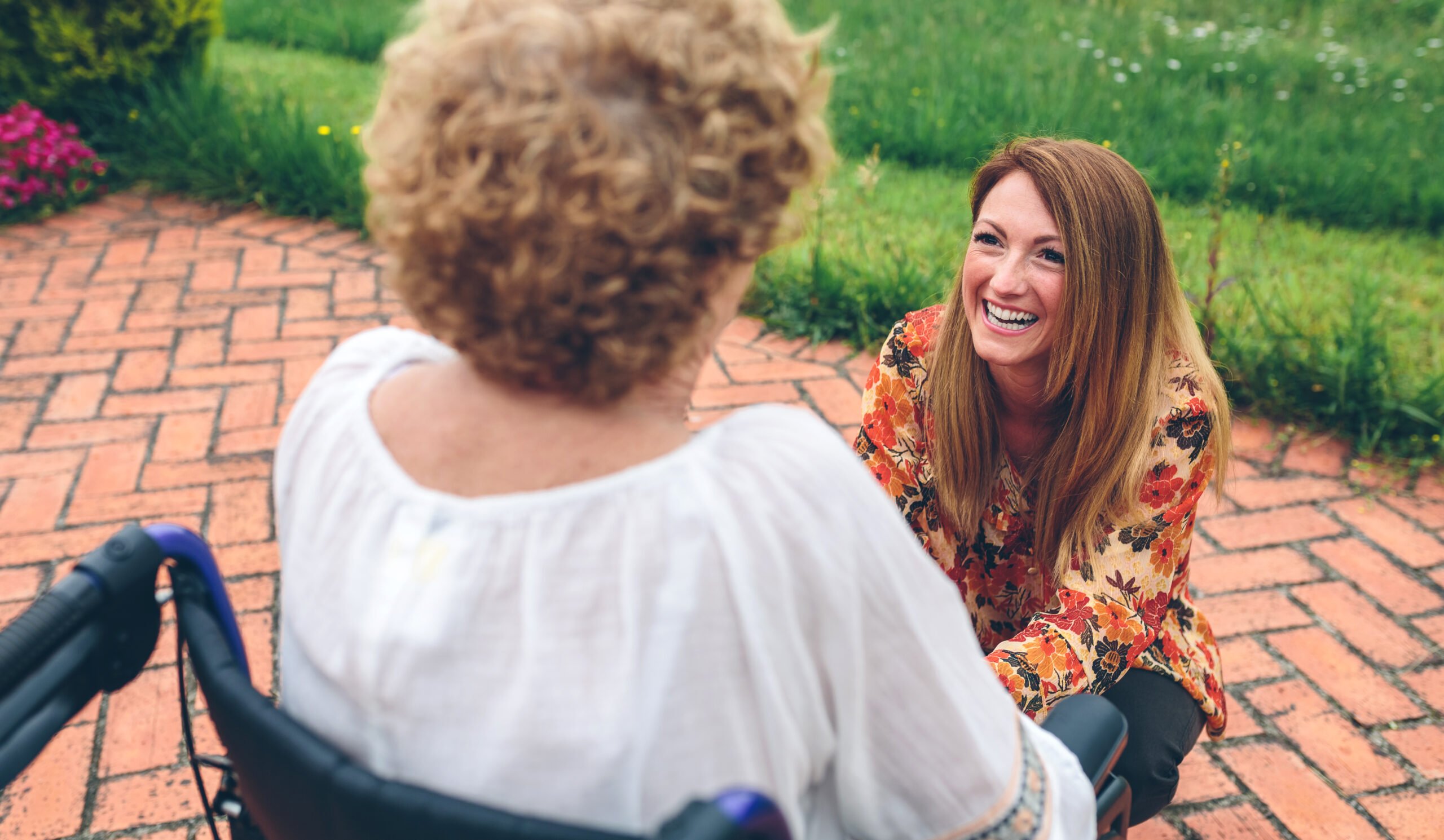Home care and self-employed carer insurance
Tags
Home Care
When you’re arranging care in your or your loved one’s own home, it’s important to consider whether you need any specialist insurance policies to help keep everyone safe. While you and your carer will of course strives to limit the risk of accidents, the role of a carer offers plenty of opportunities for accidental mishaps, many of which could have far-reaching consequences. The right insurance can give you greater peace of mind and additional safeguards against these.
The risks involved in caring for an elderly person
No job is completely risk free, and caring for someone comes with some unique daily risks. In its simplest form, caring for an elderly person in their own home can involve just one or two hours a week of companion care. The caregiver may visit the recipient’s home to share some conversation over a cup of tea, or may take your loved one out for an afternoon stroll in the sunshine.
But a simple mis-step could result in a fall, which could cause a broken or fractured ankle, whilst a scalding cup of hot tea has the potential to cause lasting injury to either party.
The potential for accidents can increase in line with the scope and complexity of the carer’s duties. So a caregiver providing 24/7 care at home to someone with complex health issues is likely to encounter more opportunities for accidents. helping a client move from one place to another, or even routine household tasks may not always go smoothly.
And as anyone providing dementia care will understand only too well, the progression of the disease means the chance of slips, trips and falls can increase over time. Forgetfulness and out of character behaviour may also pose an increased risk of the odd mishap too.
Having the right insurance in place will help protect you legally and financially in case of an incident. If a carer becomes injured while caring it can help cover legal expenses in any potential claims they make against you.
Hopefully, you won’t need to use it, although it’s worth knowing that insurance doesn’t just cover you against serious injury or incidents, it’s also there to protect you from more mundane things too. For example, if your carer accidentally causes damage to property, it can help with the cost of repair – and vice versa.
What insurance do care providers have?
A care agency will usually offer some form of cover, however, the insurance they have will usually depend on the type of care provider they are.
As an introductory agency, Elder works with self-employed carers who are responsible for arranging their own personal injury, public liability, and professional indemnity insurance. Elder does however have it’s own public liability insurance. This policy covers each carer in instances of accidental damage which may occur when they are in your property. The Policy includes a £500 excess in relation to any claim for accidental damage to property. You can find out more in our terms.
I’m arranging care, what insurance should I get?
It makes sense to protect yourself from liability if your carer is injured while living or working in your or your loved ones home. As your carer’s employer there are other things to consider too. For example, if your or your loved one’s health deteriorates suddenly meaning the only suitable form of care is moving into a nursing home, the right insurance can help cover any redundancy or notice period payments that you’ve agreed with your carer.
With a huge increase in the number of people opting for care at home, rather than residential care, home care insurance is more widely available than ever before. A swift online search will reveal numerous companies who offer insurance policies for both carers and for employers, providing reassurance around the clock and covering a multitude of scenario.
Public liability insurance
In the simplest terms this type of insurance provides cover in case someone is injured, or experiences damage to property.
For example, this type of cover may protect you from claims such as –
- Your loved one loses their balance while out and about. They grab on to a nearby car to steady themselves, but accidentally scratch the paintwork in the process.
- Your loved one experiences a dementia hallucination in a shop and becomes scared. They lash out at someone, causing them an injury.
Public Liability Insurance can also cover any payments if you’re successful in making a case against a live-in carer. This insurance will also include any legal fees. For example, you could sue a caregiver for hurting your loved one while moving them and, if successful, could receive compensation. This compensation would be paid out by public liability insurance.
Employers’ liability insurance
If hiring a private carer – and therefore becoming their employer, this provides protection against claims made by your carer for compensation as a result of an injury or illness caused by care activities. For example –
- Your carer trips in the garden while hanging laundry and breaks their wrist, meaning they are unable to work for a few months.
- Your carer contracts an illness due to a needle stick injury due to used needles being stored incorrectly.
- Your loved one falls ill and will only be discharged to a nursing home, meaning you no longer need the services of your carer.
Some insurance providers offer basic policies that includes both public liability and employer liability insurance. Remember, insurance policies can be confusing, especially if you’re not used to legal language. Make sure you fully understand the policy wording, and what the limit per claim is before signing anything, otherwise you may be responsible for covering a lot of unexpected costs yourself. If in doubt, don’t be afraid to talk it through with the provider, or consult an expert, such as a local financial advisor.
Car insurance
Sometimes families will have a car that they’d like their carer to drive a loved one around in. If this is the case, it’s essential that you ensure they are added to your insurance policy as a named driver. This means that in the event of an accident you’ll be able to make a claim.
Home insurance
Home insurance covers two different areas – Contents insurance, which covers your possessions against fire, theft and other risks, such as accidental damage, and building insurance, that offers protection against damage to the building structure. You’ll likely already have it in place, but if you don’t it’s worth arranging it if another person is going to be living or working in the home.
Most insurers won’t class your carer as a permanent resident, which means your existing content insurance policy may remain the same. However, it’s important to notify your insurance provider of your live-in care situation, because if an accident happens and they’re not aware that someone else is staying at the property it could invalidate any potential claims.
Business equipment insurance
Agencies and individuals providing home care may also choose to have Business Equipment Insurance. This type of insurance covers any medical equipment. Therefore, while not always necessary, if your loved one relies on equipment which could be lost, stolen or break, it might be worth considering.

What insurance should my self-employed carer have?
Public liability insurance
In much the same way as you, carers will need to protect themselves against accidents or injury to others. This may include instances such as –
- Your loved one’s medication was mixed up or mislabeled without the carer’s knowledge, resulting in the incorrect medication being given to your loved one to take.
- Your carer damages someones property while getting a wheelchair out of the car
- Your carer accidentally causes water damage to the bathroom floor, while helping you out of the shower
Personal accident cover
This provides protection if they suffer a serious accidental injury whilst carrying out support duties.
Professional Indemnity insurance
This policy is designed to protect self-employed carers if a client claim a service is inadequate or not delivered as agreed.
Again, some providers offer a carers insurance policy that includes different types of cover in one package.
Elder has partnered with Fish insurance to offer carers a discounted package of carer and personal assistant insurance.
Carers and personal assistants on the Elder platform can easily access and arrange their own insurance to support peace of mind on both sides. Find out more here.
Now you are aware of what types of insurance available to you and any potential carers, it’s time to do your research. When choosing a carer, it pays to take the time to research properly and ensure everything is in place to provide the right level of cover and keep everyone as safe as possible.
This article is for informational purposes only and not to be taken as financial advice. Always consult a professional for financial and insurance matters.
Learn more about home care
Take a look at more Elder guides on how to arrange and adjust to care at home.

What type of background checks should I be doing on a home carer?
What type of background checks should I be doing on a home carer? When you employ a home carer to look after a vulnerable

Elderly nutrition: cooking & meal preparation for the elderly
Elderly nutrition: cooking & meal preparation for the elderly Healthy eating should always be a priority, but as we age, our nutritional needs change

What domestic tasks will a home carer look after?
What domestic tasks will a home carer look after? Live-in carers are at the heart of our comprehensive approach to round-the-clock home care. Care

Home care and self-employed carer insurance
How are home carers insured? Deciding to bring on care at home for a loved one can be an emotional process. Because of this,

How to care for elderly couples and keep them together
How to Care for Elderly Couples When a couple has lived together for many years, they usually want to stay together, however this can

Home help for the elderly
It’s natural to need a little help with things as we age. However, if you or a loved one is finding daily tasks more